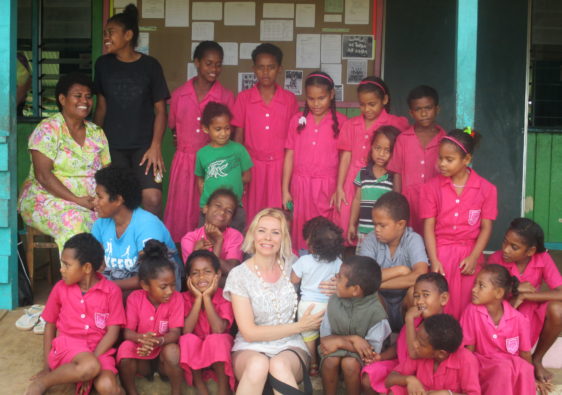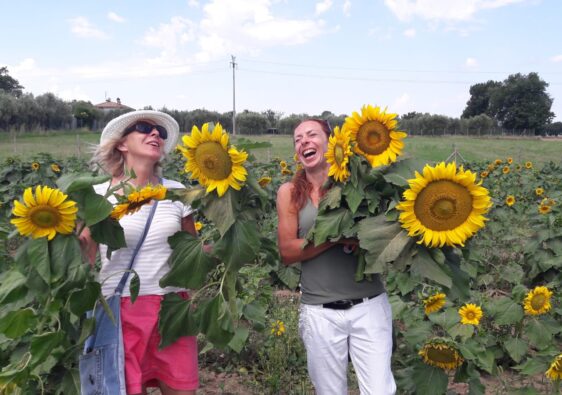Open your mind and create Human Connections through the power of books

I want to share with you some of the books that are important to me, hoping that you will find inspiration for your next reading. But first of all, I want to tell you what books represent to me.
Books are one of the bricks our mind uses to create and enlarge our personality. Other bricks are our family, culture, the environment we grew up in, travels, people we met in our lives, experiences, and so on…
Books have the privilege to be chosen by us while many other circumstances are just predetermined. This aspect is not so trivial. Of course, I am not talking about the books we are requested to study at school or in our religion. I am referring to the books we come across in our life at the precise moment we need them. In fact, any book has its time and it couldn’t be read in another stage of our existence.
Books have the power to enlighten our minds, cheer our souls and show us the way towards the future. They are made from thousands of other minds that wrote them, and they incorporate all the knowledge and wisdom that humanity has developed through the centuries.
Books are power! The power to overcome conventional mentalities, the power to react to injustice and abuses, the power to build rights and freedom. Books are our allies.
Books are simply our friends when we need company, or they can be a shelter when we want an imaginary protected place.
Books are tools human beings use to create connections with other human beings.
And here we are: Books are Human Connections!
Big Magic By Elizabeth Gilbert

I came across this beautiful book by Elizabeth Gilbert and I can’t help but share it with you and recommend that you read it. I totally identify with the author’s words and can say that this blog has so much to do with the writer’s conception of creativity that I thought to include a review of this book in my free thoughts section.
Then, let’s talk about creativity with Elizabeth Gilbert…
Creativity is an intriguing topic! There are many people who profess to be creative and others who think they don’t have this gift. In reality, as human beings, creativity is a natural component of our DNA and we should be brave enough to trust ourselves and our potentiality. We should be ready to open our door to creativity when somehow it comes to visit us, asking for our attention and collaboration. Elizabeth Gilbert deserves a huge credit of having communicated through Big Magic that being frightened or shy to unleash our creativity is the first obstacle we have to overcome if we want to give our talent a chance.
The big originality of this book is the writer’s new conception about the nature of creativity, which she describes as an abstract entity searching for a person, where to get embodied in, to get manifested into the world. Ideas are not our exclusive possession, we are not the genius who gave birth to them, and we don’t have any right over them because they don’t belong to us. We just have the power to welcome them when they come into our mind and bring them into life. Ideas come to stay with us for a while, and if we don’t give them importance or the chance to become real, they will move on to another person, until they find someone that will take them so seriously to invest passion and time to convert them into real creative products.
Knowing the difference between being a genius and having a genius is the clue to understanding one of the central cores of this book. It’s a matter of responsibility! Who created a masterpiece often is defined as a genius, and that creates a big sense of anxiety and the feeling to be in charge to keep producing the same artwork value. Many artists get blocked by these feelings, losing inspiration and the capacity to produce new artworks for many years, or even for the rest of their lives! Having a genius is a liberating position for an artist, who becomes free to welcome another idea that can be ingenious or not.
“Never quit your job to follow creativity!” Elizabeth Gilbert invites us to keep our financial tranquility and dedicate our spare time to projects, artwork and any kind of creative activities that match our passion. To think having to make a living with creativity, giving to our creative projects the responsibility to pay bills and rent can, at the beginning of an artistic career, lead to frustrating results with the risk of abandoning this path. But using the golden free hours we have after work, can give good results and can fulfill the need we have to express our creative talent.
“Done is better than perfect”: this is another valuable piece of advice that the writer took from her mother and wants to share with us. Waiting until everything is perfect before putting it out there into the world, would slow our creative process with the risk to get the same work unfinished. Perfectionism has something to do with fear, the fright that our art will be rejected or criticized. But nobody ever died because he got a bad review and, in any case, it is always our ego that can get hurt by a negative comment, never our soul. And we should create above all for our soul, because as Elizabeth Gilbert writes: “Creativity is a gift to the creator, not just a gift to the audience”.
Every artist should work with discipline, day after day, after day, and not just to follow his passion, which is quite obvious, but to feed his curiosity because inquisitiveness is the engine that keeps the inspiration always alive. Emotions may come and go, and so the passion could weaken by the effort to create in absence of feelings or perceptions. Instead, curiosity always brings new ideas and opens alternative routes that can ignite the passion for new great creations.
In the end, the biggest tip of this incredible book is to trust your creativity and work steadily and “you might just get lucky enough some random morning to burst right into bloom“.




